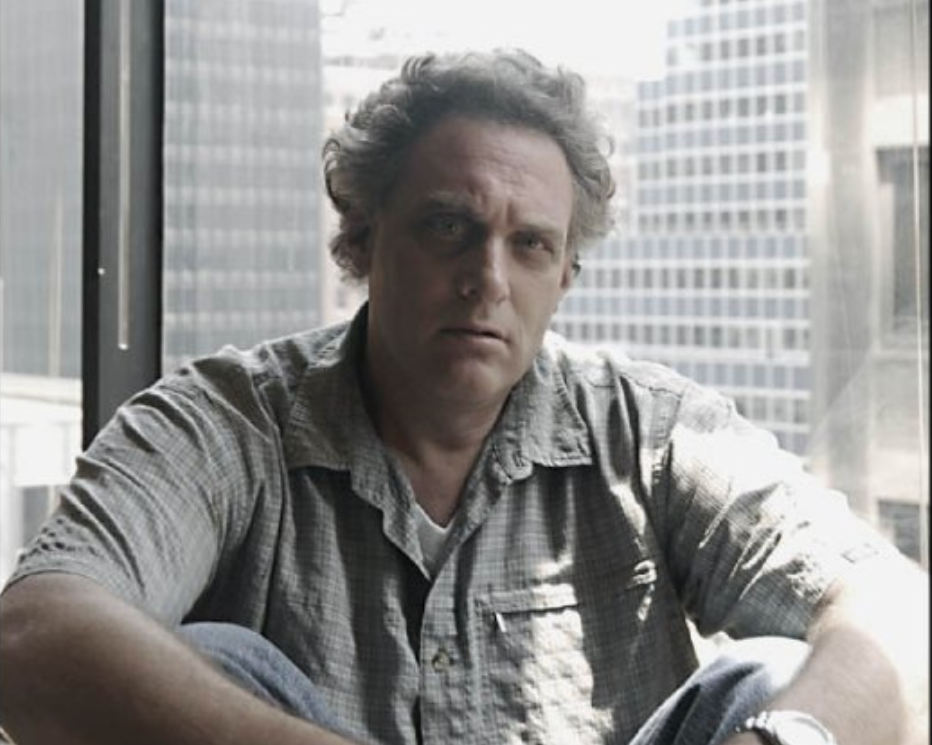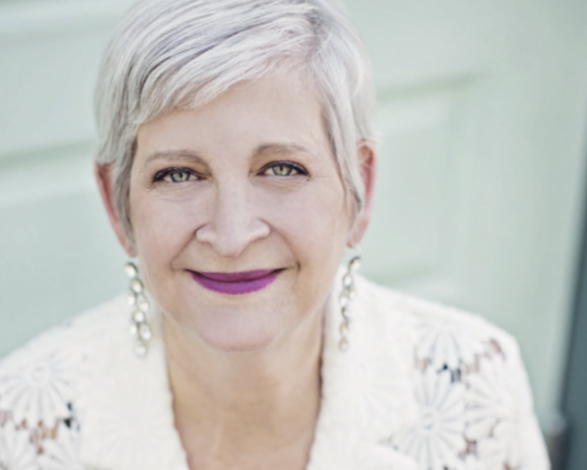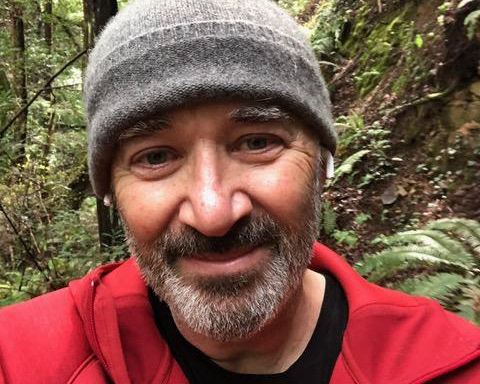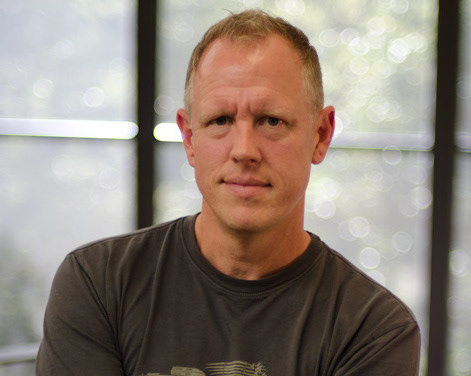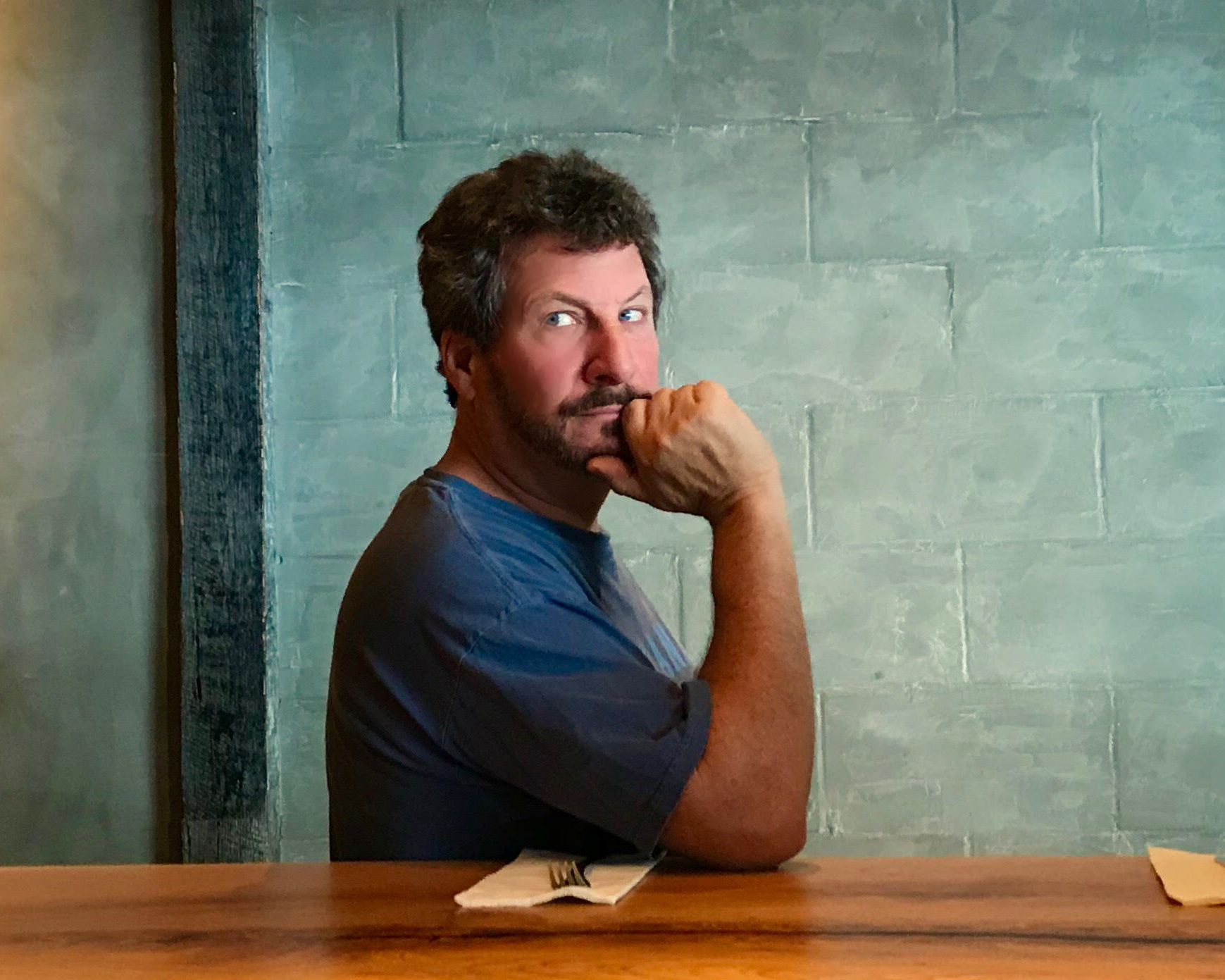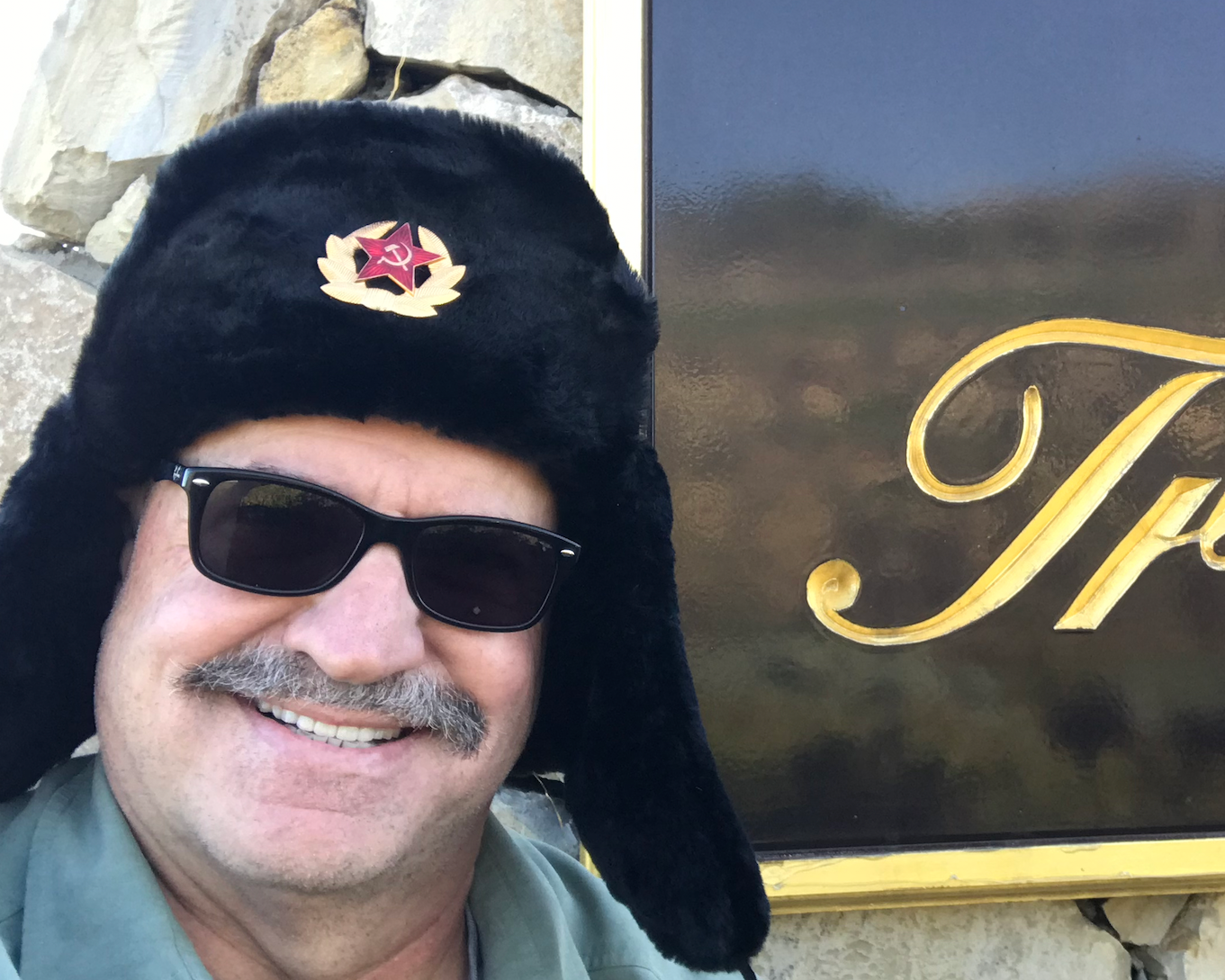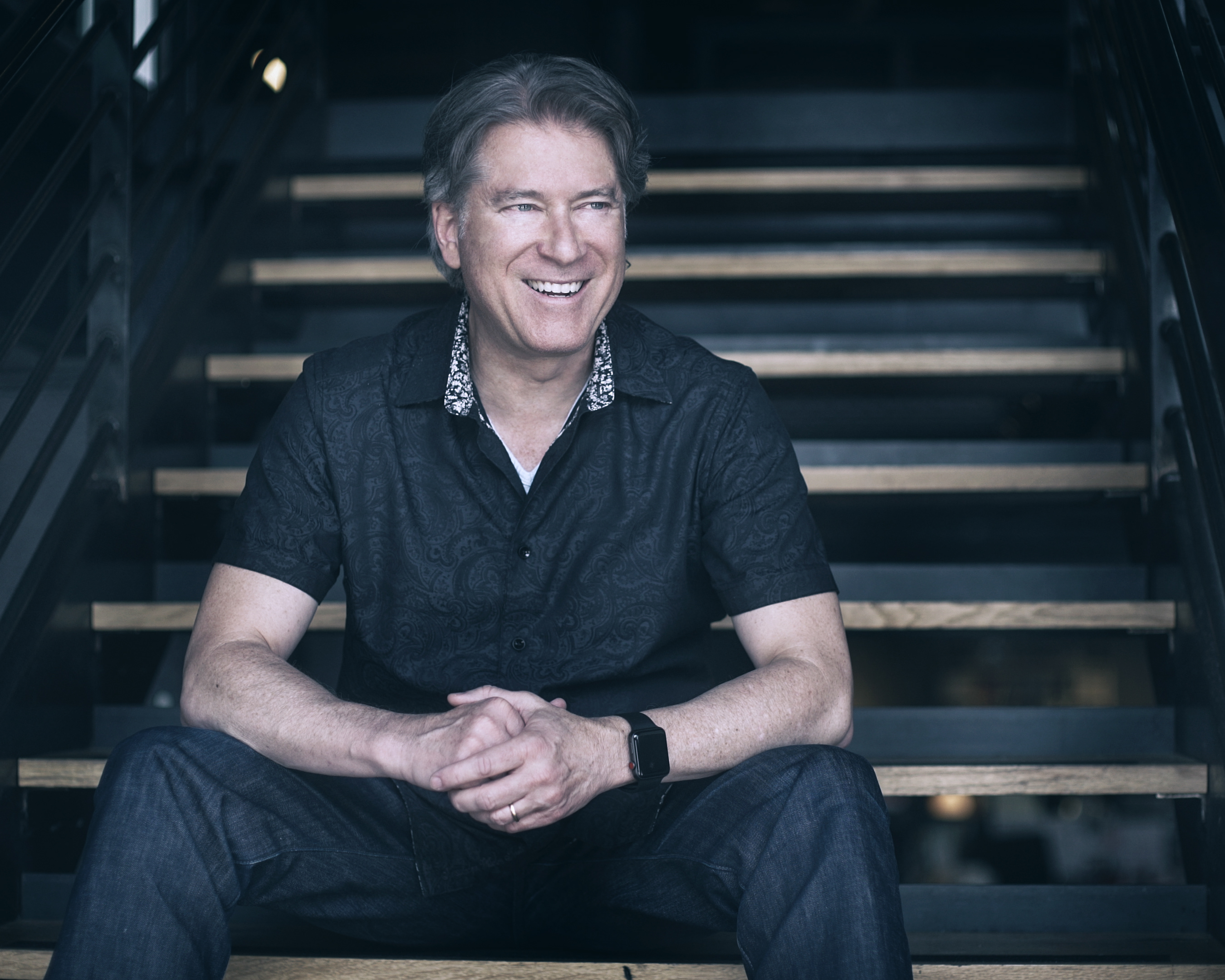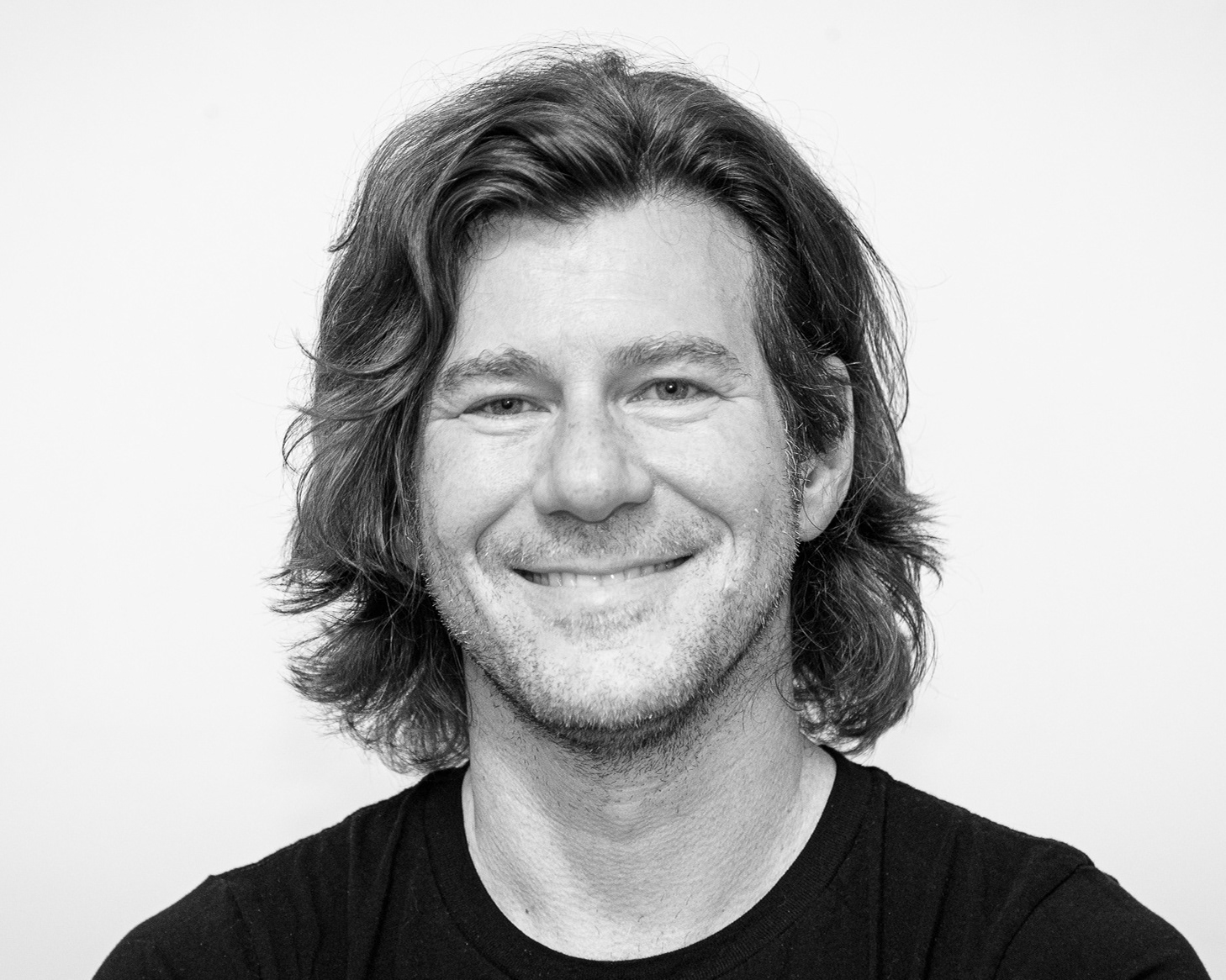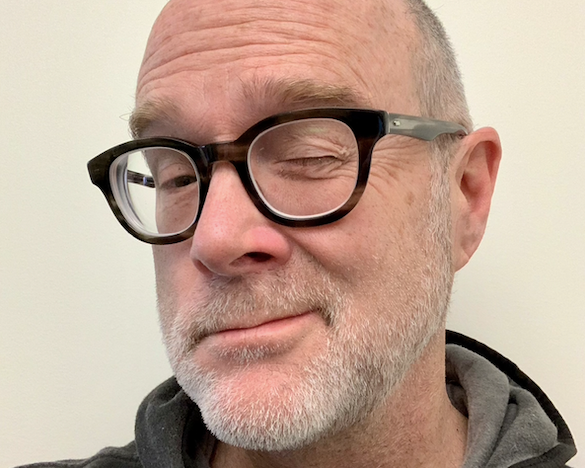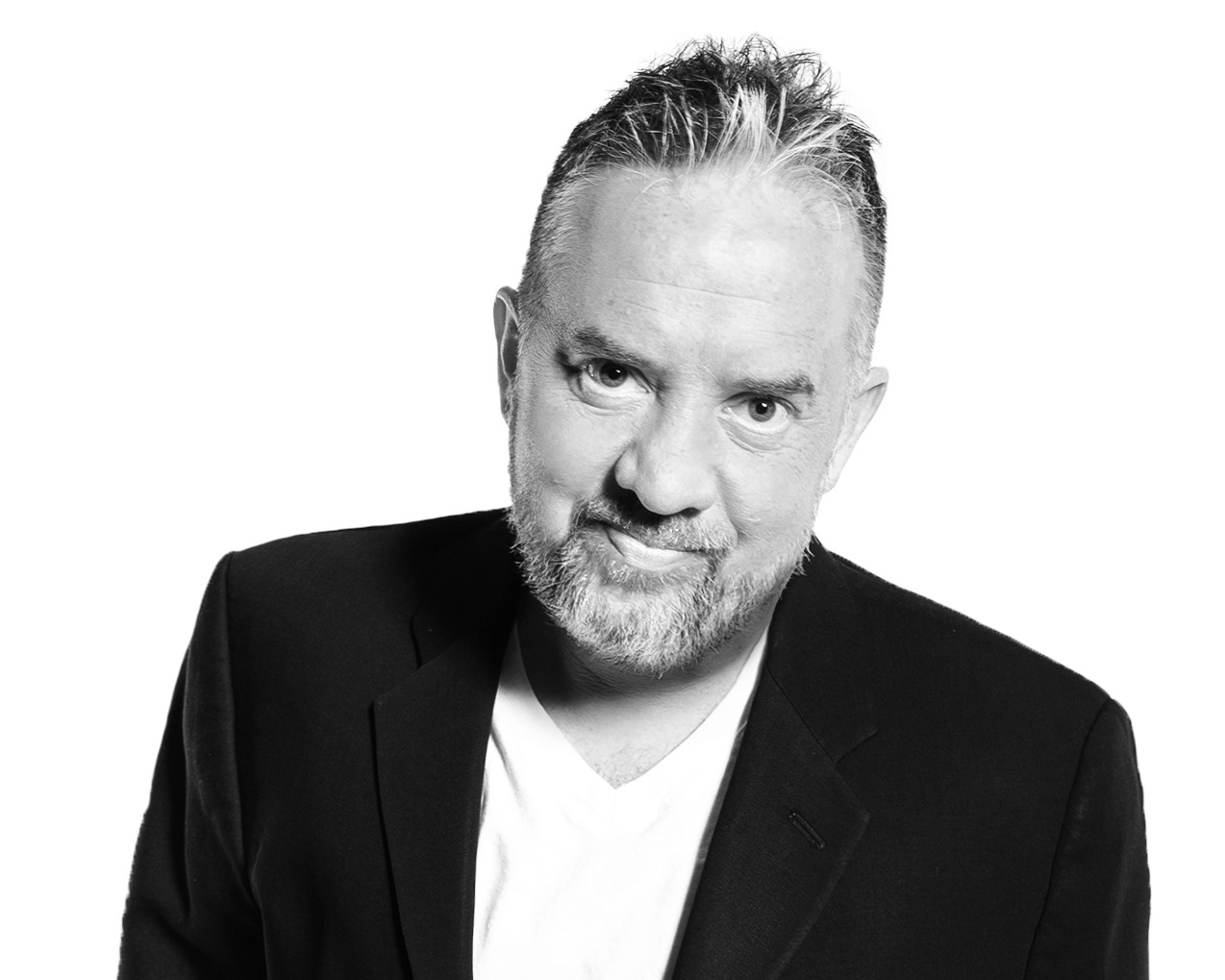That’s Day, as in Guy Day. As in the guy who’s half of Chiat/Day. And if you think Cameron Day had an advantage when it came to a career in advertising, you’d be right. He learned much faster than the rest of us that there’s more to life than, well, advertising.
A good part of Cameron’s career was spent working hard, creating award-winning and client-winning work for coveted brands like Rolling Stone and Range Rover. It was also spent playing hard on his 5-acre slice of hill-country in Austin he and his wife call “Rancho Funk,” a place where classic cars are tinkered with and chainsaws are toys.
These days, Cameron’s putting his vast experience to use as a “Chief Creative Mentor.” He’s spending less time creating award-winning work and more time helping others create it. And when it comes to living a balanced creative life, he can teach us all a thing or two.
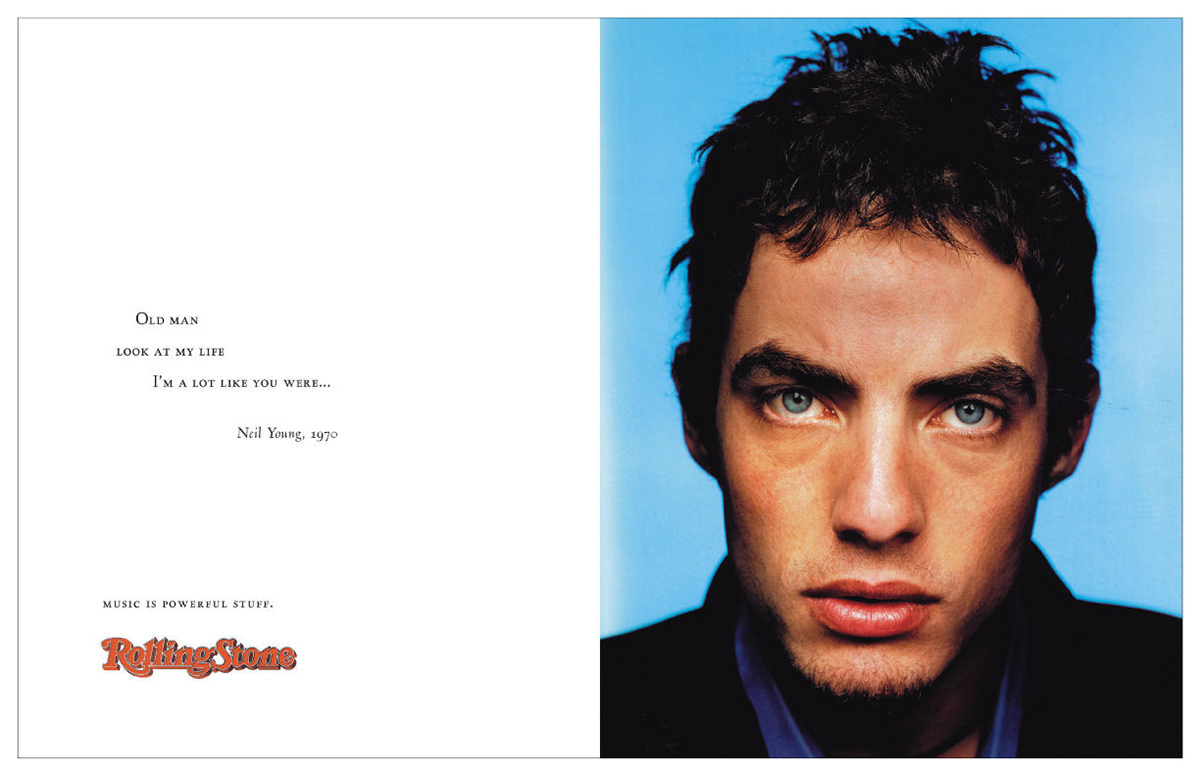
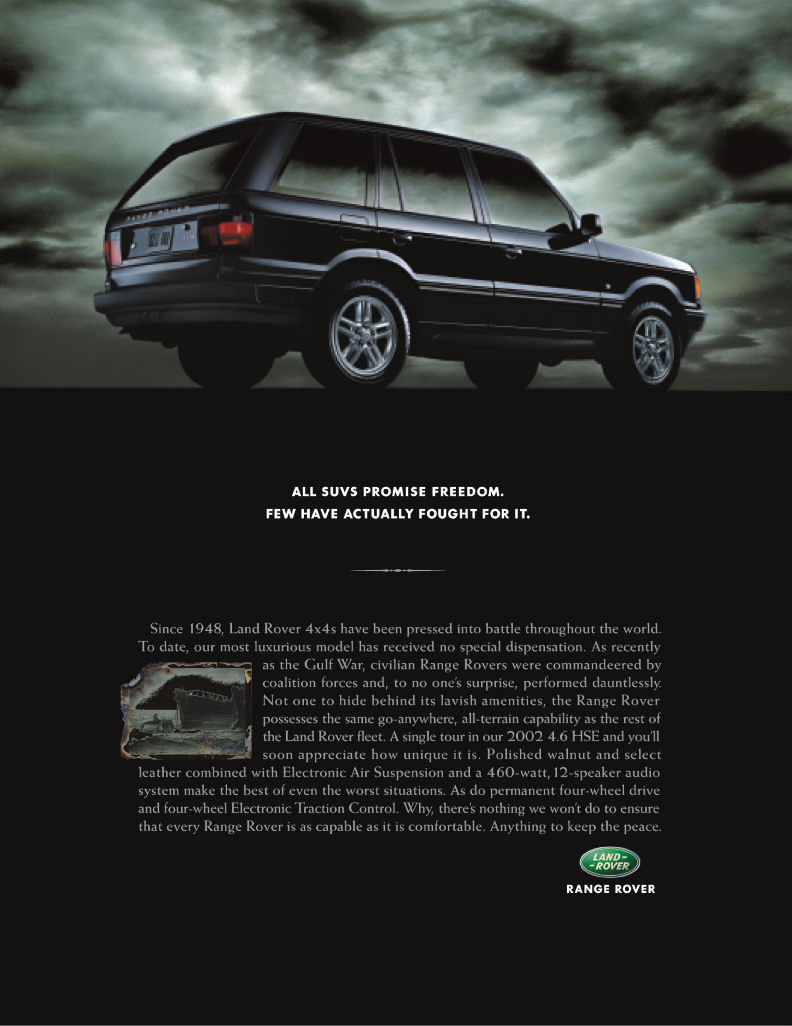
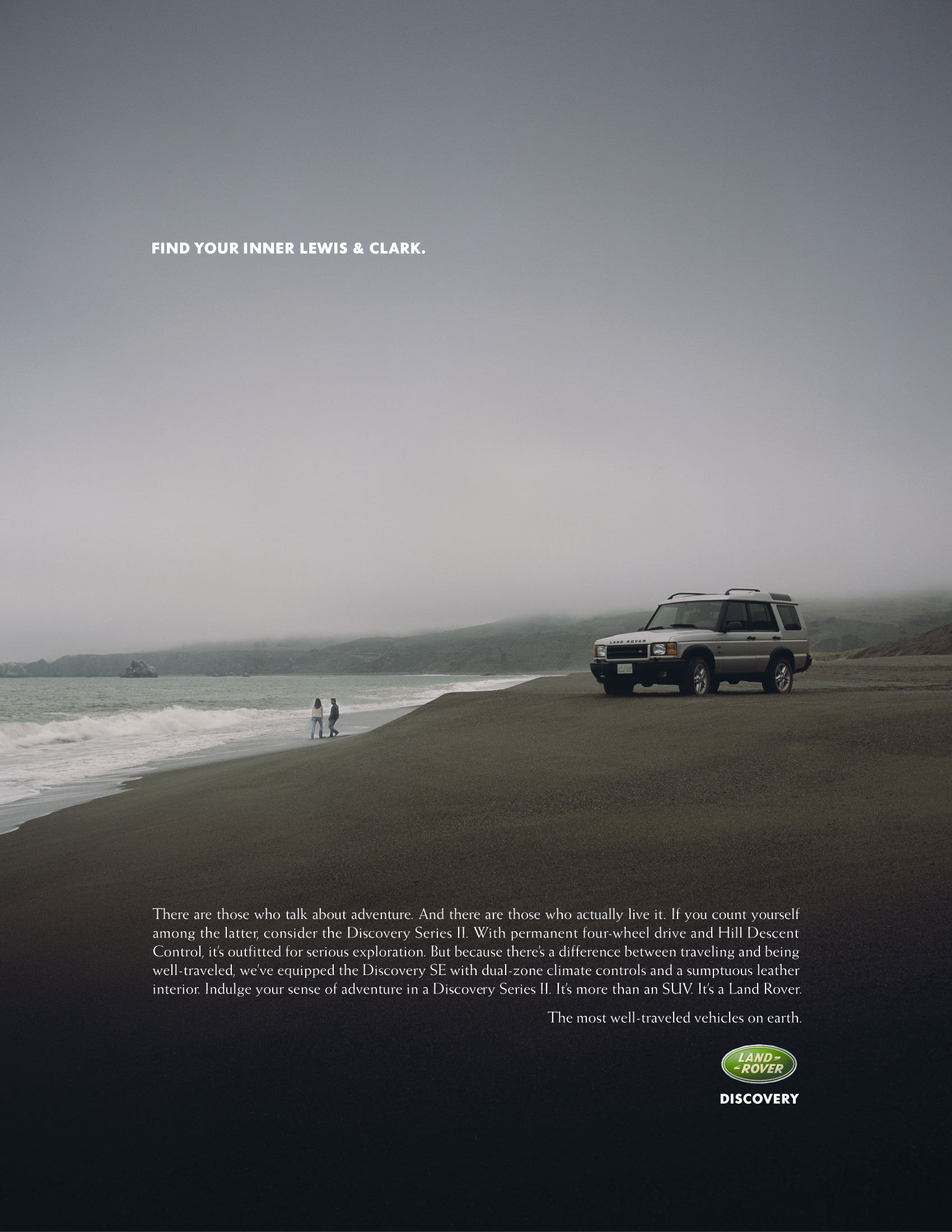
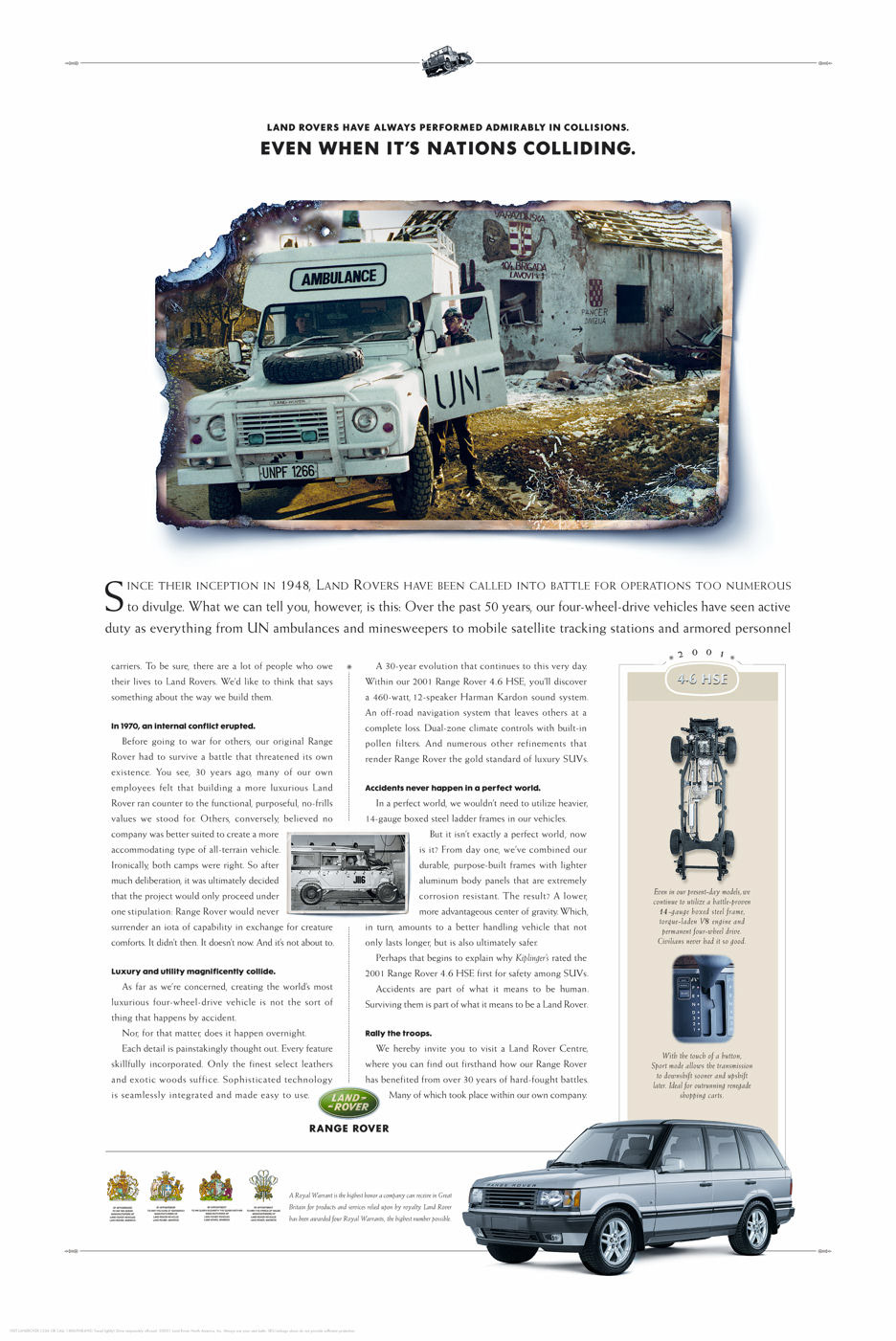
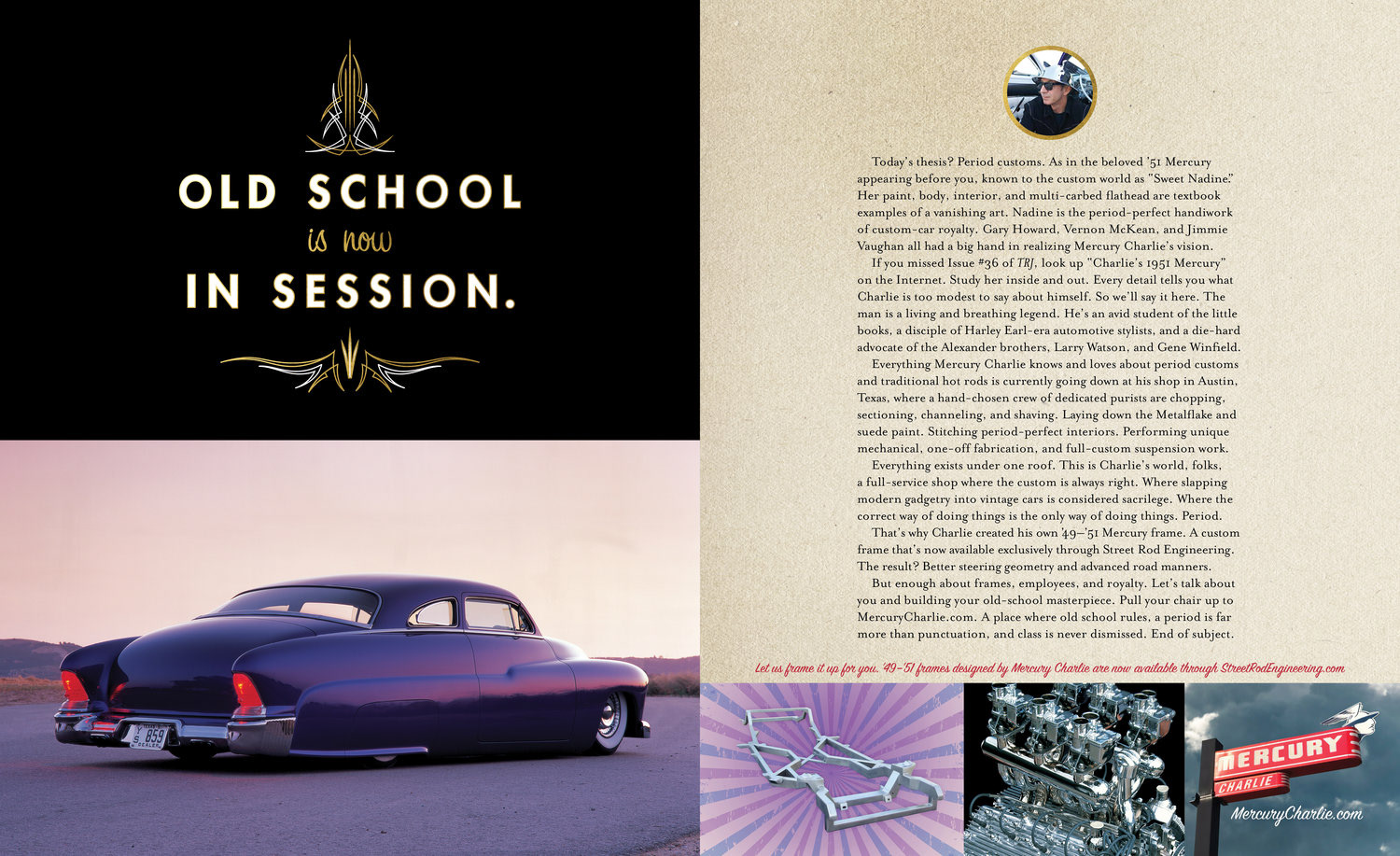
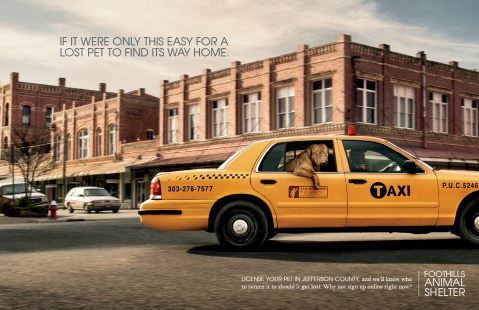
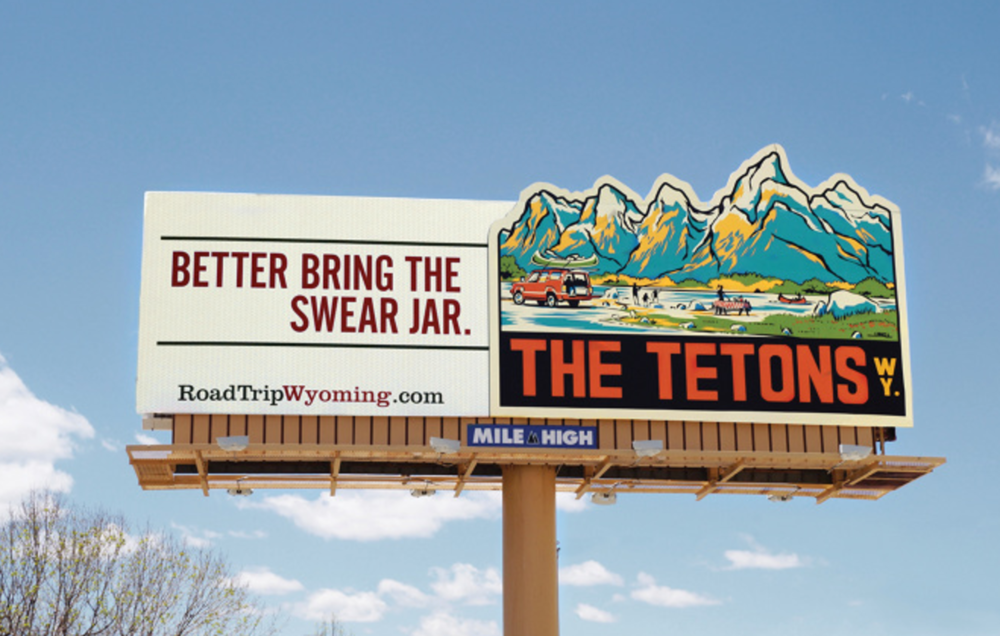
Is ageism in the industry something you thought about in your 30s? Your 40s?
I started thinking about ageism in my late thirties. I was a dad and a husband but felt like I still had a lot to prove as a creative person, particularly given the fact that my dad was a co-founder of Chiat/Day. And to make matters worse, I’d spent almost two decades in Los Angeles never aspiring to work for my dad’s shop.
My wife and I made the decision to leave L.A. when our sons were five and eight. We were looking for a better place to raise our two sons and after the Northridge earthquake, the riots and the OJ debacle, we we ready for a change. We did our homework and Austin seemed like a great option. It appeared to have everything we were looking for. Great live music, good public schools, and a laid-back vibe.
I sent my work to GSD&M and a year and a half later, they hired me. I was 39 at the time. That was getting long in the tooth for a creative and I walked into the agency laser-focused on making every moment count. I was determined to not disappear from the advertising landscape. I knew that if I didn’t do career-defining work, my future was screwed. I was a GCD with a solid portfolio walking into an agency where no other GCD had run a major car account. I knew why I was there and how I was going to be deployed.
Land Rover invited us to pitch their business shortly after I joined and we handily beat Crispin and Kirshenbaum to win the business. I was forty by that time. It was the opportunity of a lifetime.
Our first campaign won the business but was not the best work we did. We pivoted to a new position, and suddenly everything fell into place. We sold a long-copy WSJ print campaign for the Range Rover model line under a new tagline, “The most well-traveled vehicles on Earth.” That was the brand repositioning that changed everything.
Our print, radio, and television got into numerous shows. My group was doing the best work of our collective careers. It was a lot of hard work but the effort paid off for all of us.
What followed soon after was another opportunity for me to do the kind of work I aspired to do. I learned that the Wenner Media client (Rolling Stone magazine, Men’s Journal, and US magazines) was threatening to hand their Rolling Stone magazine assignment to NY shops if our agency didn’t show them the right campaign direction in the next meeting. A lifelong lover of RSM, I threw a direction into the mix that I felt nailed the brief. Jann Wenner and Fred Woodard loved it. I was made the creative lead on the RS business at the client’s insistence.
Shortly thereafter, a TV commercial idea that ACD Lou Flores and I had come up with was thrown into the 7Eleven pitch, which was being run by a different GCD team. GSD&M won the business and our idea got produced. It subsequently won a One Show pencil.
I was an old dog, but I used every trick I knew to get my work in front of the high-profile clients who were beating a path to GSD&M’s door. I got very focused on making my later years count. I learned to focus on the work beyond the politics and the cliques. I learned how to listen, read between the lines of a brief, and negotiate with clients.
Austin was a turning point for me and my age was a huge motivator to make my own success happen. I became an idea machine and let others worry the politics. I knew I wasn’t making a lot of friends by throwing ideas into the mix any time an account was in trouble or a pitch was happening. I didn’t give a rip what anyone thought.
I ran towards the fires others ran away from. I was determined to make a mark without being a raging asshole. I actively avoided happy hours and hobnobbing with fellow creatives. I got to work early and left on time as much as possible. I befriended clients, account people, and planners. My wife and I went to concerts while the other creatives ignored their families thinking they were contributing to an internal culture. I wasn’t buying it.
I made the work bend to the lifestyle I wanted, and it was the best decision I ever made.
In less than three years, I won pencils for Land Rover, 7Eleven, and was asked to lead Rolling Stone by Jann Wenner himself. Every one of those opportunities was a joint effort working alongside people arguably more talented than myself. But the real irony was, the only account of that I was expected to work on was Land Rover. I didn’t wait for opportunity to find me. I sought it out. I took it upon myself to engineer my own success. I leveraged timing and circumstance to make a difference knowing fully well that GSD&M was not my cup of tea. It was too big, too political, and wasn’t being selective about its growth, as I saw it. I wasn’t a company man while there because I didn’t trust that the people at the top were building a great agency.
I was focused on making work that would extend my career, first and foremost. But all that said, the agency provided me a ton of at-bats, brought me to Austin, and gave me a portfolio full of career-defining work. So, I’m grateful and indebted to them even if I didn’t agree with their mission.
I was laid off from GSD&M with a big wave of other people after the agency lost a huge telecom account, and Land Rover announced its move to SoCal and a consolidation with Jaguar and Lincoln netted Y&R the three brands globally.
With the honeymoon over, I went freelance. I’d been lucky enough to touch the best brands in the building. I made my age work in my favor because I knew how to negotiate with clients. I refused to get swallowed into management or taken off accounts based on having client relationships. In retrospect, I was a pain in GSD&M’s ass because I didn’t play by their rules.
I used creating and being able to deliver and sell good work as my own formula for fighting ageism.
Is ageism something that’s affected you? What are some of the challenges you faced as a person who was getting older in the business? Do tell.
I believe I was a victim of ageism at McGarrah Jessee. After the economy tanked and digital reared its pointy head, I was forced out in spite of leading a department that garnered Ad Age’s Southwest Agency of the Year and growing the agency in size and stature. I was marched to the curb, given no severance, and lost a 10% ownership stake in the agency. And the worst part was, I mistakenly thought my contributions were truly valued by the agency. I wasn’t trying to be anyone’s friend. I was trying to lead a department.
You find out a lot about people and agency cultures when the economy tanks.
"You find out a lot about people and agency cultures when the economy tanks."
Tell us about your own creative journey. What are your thoughts on where you are now, compared to your mindset when you were in the beginning of your career?
In the beginning of my career, I wanted to be universally liked. I stopped thinking that way when I moved from Los Angeles. I realized that being respected was far more important than being liked. It’s not a popularity contest. Haters will hate you no matter what. You’re only as good as the work you do. And I never stopped making good work.
When I got to Austin I stopped expecting as much from others and more of myself. I stopped blaming clients for bad work. I forced myself to make the work better regardless of the client. I refused to let my career die but made my life a priority. I stopped worrying about awards and concentrated on building relationships. And the irony is, it probably led to more awards for myself and others.
Today, I’m as happy as I’ve ever been. I work with smart people, I solve problems every day and I’ve learned to openly share everything I’ve learned. I no longer feel the need to drive. I’ve taken my hands off the wheel as a writer and now sit comfortably in the passenger seat. I help others make their work better. I guide the work and manage the relationships between departments. I spend a lot of time with clients and the people in other departments. I learn and mentor in equal measure. I love what I do and feel lucky that I still get to do it.
I measure my success by whether others are growing and prospering around me.
So yes, I’ve realigned my goals and the way I approach the work. I get paid to solve problems. Sometimes they’re marketing problems. Sometimes they’re morale problems. Sometimes they’re cross-departmental problems. Sometimes those solves win awards. Sometimes they don’t.
Doing smart work and making cool shit never gets old for me. It keeps me young.
I don’t sweat trying to be on the cutting edge. I worry about solving problems in engaging ways. I do my best to understand the tools at my disposal and try to deploy the right people to get the job done.
I try to be fast, fair, and make the job fun for everyone. I’m more team oriented than ever before.
"I measure my success by whether others are growing and prospering around me."
What do you feel creative people over 50 can offer over someone 20 years their junior, things that are unappreciated, or just plain overlooked?
Here’s a handful of things I try to impart on younger creatives:
• . There’s no use worrying about things you can’t control.
• . Collaboration is a skill well worth developing and more important than ever.
• . It’s still about ideas and insights and combining the two in unexpected ways.
• . Defy the creative stereotype. Get to work early and leave on time as often as humanly possible, assuming you want you have your evenings for the other people in your life. Never let work rob you of a happy life. Work/life balance is a great career goal.
• . Just be nice. And if you can’t be nice, be fair. Be conscientious of others and their egos.
• . Don’t work for emotional cripples, psychopaths, or bullies. Life’s too short to work with assholes.
• . Avoid bad habits and sloppy drunks.
• . Be willing to bunt on occasion.
What is your advice to people who are nearing or over 40 in the ad industry?
Don’t sell your soul for advertising. The older you get the more you should contribute to growing others. Work smarter. Make those around you better and stronger. Build people up. Mentor those who are receptive to it and let those who aren’t learn the hard way.
Align yourself with people who are loyal and worth the extra effort.
How are you approaching the next 10 years? What does your future hold?
I’m approaching the next ten years as the end of a great ride. I see the finish line but it’s still a marathon, so there’s a ways to go before I hit the tape, hopefully.
I’m currently the Chief Creative Mentor @ Amelie because I’m bored with being an ECD. I’ve failed and succeeded at that job before. There’s no challenge left for me in that task. I’m a mentor to those around me and intend to make the gray hairs pay off for others.
What do you see as potential solutions for ageism in the industry? Any thoughts on possibly unionizing?
Not interested in unionizing. Everybody’s time must pass. If you’re not adding value in some form or fashion, become an Uber driver.
I think the industry needs to figure out how to be better at mentoring. We expect people to be able to do everything and be everything. They don’t and can’t. Can you?
I wish agencies would figure out that age is a valuable tool like any other. People who’ve been thrown off of horses and learned to pivot, whether by choice or circumstance, are a useful asset. Knowing how to get back on the horse and learning from mistakes is how I’ve gotten where I am and I wouldn’t change that for anything.
I wish advertising was as better at letting people crest the hill with dignity. I’d like to see agencies offer strategic demotions to older employees and options that keep them from being pushed out at the top. People who are great makers aren’t always great leaders. But that doesn’t mean they don’t have value. I think the industry might be surprised to find that older creatives would gladly trade money for more important things. Like time, or the opportunity to mentor others, or the opportunity to still make things.
I’d gladly take half my salary to do half as much management and twice as much making. But nobody has ever offered me a deal like that. And right now, I’m having way too much fun being a mentor to do anything else.
"I think the industry might be surprised to find that older creatives would gladly trade money for more important things."
What are some positive things you’ve experienced as you’ve grown older in the business?
I’ve learned to share tips and tricks, rather than selfishly horde them to myself. I’ve learned to listen to good advice and to share valuable tips. A rising tide lifts all ships. I’ve learned to mentor those who appreciate it and to learn as much from those I mentor as they learn from me.
Who do you look to for inspiration?
I’ve always admired Lee Clow and seeing as he recently retired, I’d like to suggest we could all take some valuable lessons from him. He worked very hard to understand his client’s businesses. He understands the human condition. He has an incredible amount of empathy for both clients and consumers. He treats his clients as part of the process.
He earned their respect and constantly pushed them to make great things.He understood that they were on the ride with him and included them in the process. Lee earned every ounce of his success.

